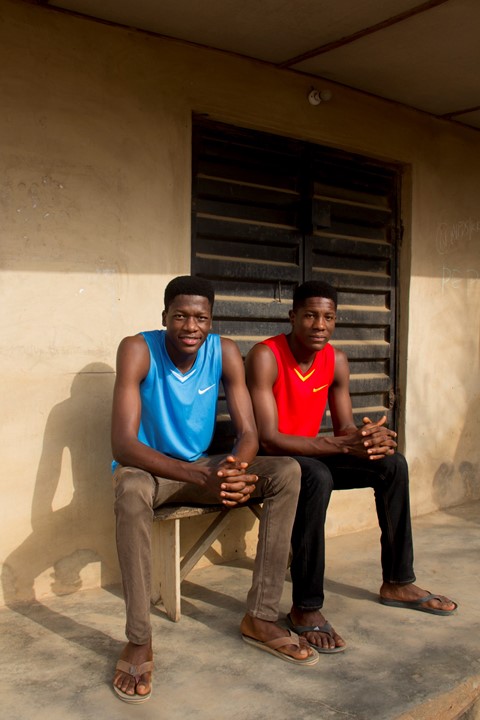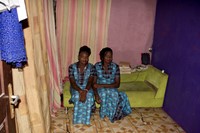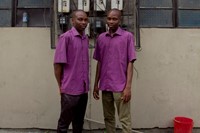Lagos-based photographer Stephen Tayo speaks to AnOther about his ongoing series IBEJI, which focuses on twins in Nigeria
Ibeji is the name of the Orisha deity that represents and protects twins in West African and diasporic Yoruba culture. Twins have historically been celebrated as a sign of good fortune by the Yoruba people – an ethnic group originating from Yorubaland, an area in and around present-day Nigeria. This is perhaps unsurprising considering Nigeria’s high twin birth rate: one town, Igbo-Ora, in the south-western Oyo State is colloquially known as “the land of the twins”.
Ibeji can be translated to mean “the arrival of two”, Nigerian photographer Stephen Tayo tells AnOther. Tayo, who is from Ikere-Ekiti but is now based in Lagos, has spent the last few months photographing twins from across the city for his ongoing series IBEJI. His aim is to better understand their role within Nigerian society, in particular Yoruba culture. The project developed out of Tayo’s urgency to document local customs and beliefs in an increasingly globalised world, one where Western attitudes continue to dominate, if not monopolise, cultural conversations.
Tayo has, over the past few years, turned his lens on a number of subjects that in different ways capture local experience through photography. From candid snaps of Lagos’ street style to intimate portraits of his grandmother, the photographer’s artistic practice continues to develop as his interests expand. IBEJI is only the most recent example of work that demonstrates Tayo’s artistic gaze and its power to celebrate the beauty of ordinary people. Here, Tayo expands on his practice and the series.
On the motivation behind IBEJI...
“The idea was to ask questions that explore the psychology of twins. For example, what impact does having one’s identity defined by another have on one’s understanding of the self? The mythologising of twins often means that many people address them as a single unit, defining their identity through their physical similarity and emotional proximity.”
On Orisha deities in Yoruba culture...
“Twins are considered the physical manifestation of an Orisha deity to the Yoruba people. Much of the Orisha’s influence has unfortunately diminished because of modernisation and the increasing acceptance of Western ideals. Yet, despite this, there remains a fundamental awe of twins in Nigerian culture and twinship continues to be highly valued by the country’s Yoruba people.”

On his role as a photographer...
“The message my work relays is the most important thing to me. The story of twins is by no means new. All I’ve done is build on an ongoing conversation by asking the questions I was interested in about identity and psychology.
“I also wanted to explore the relationship a photographer can have with multiple subjects, especially when the subjects have had near identical influences and upbringings.”
On what IBEJI has taught him...
“I think it has helped me understand the complex nuances of identity. People might appear the same, but there is inevitably something that will separate and distinguish them. I found that many twins celebrate their similarities out of a mutual solidarity, raising the question: how does looking alike impact or inform the ways people define themselves?”






